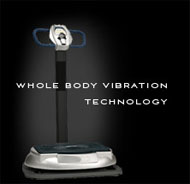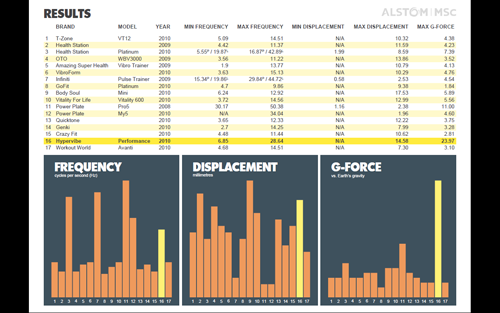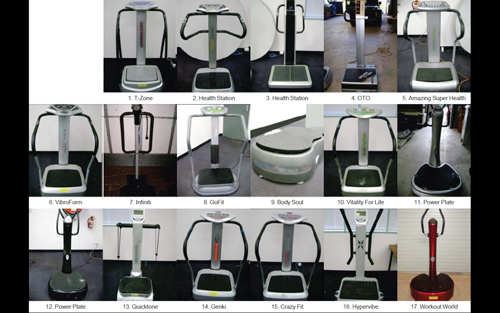Nutritional Counseling
There are so many different books, thoughts, opinions, studies, etc out there, about eating healthy.
We understand that everyone is different.
So what we do is help you find out what food is best for you.
Not only for losing weight, but for being healthy as well.
Below are examples of what we help you with.
You might ask yourself things like:
Should I be a
carnivore, omnivore, vegetarian or perhaps even a vegan (no animal products what so ever)--no eggs, cheese, no cod liver oil.
Should we eat a High carbohydrate-low fat diet (govrn.'s food pyramid). Or should we eat a
high protein--low carbohydrate diet (Atkins) or maybe the Zone diet (Barry Sears) suggesting that the way to go is by eating 40% carbs, 30% prot, 30% fat.
What about specific food products?
What is best--butter or margarine, is chocolate good now, I hear it has antioxidants?,
what about eggs? (egg white, eggbeaters, or can we actually eat the whole thing).
The best book that sums all this up is:
The Metabolic Typing Diet by William Wolcott
The Summary of the book is:
We mainly fall in three different categories in terms of our metabolism.
- The Carb type
- Protein type and
- Mixed type and that the proportion of carbohydrate
Producers of skin care products figured this out long time ago--different lotion for dry, oily and normal skin.
Determining your dominant Metabolic Type Questions
These Questions are ranked in order of importance, with the most emphasis being put on how coffee, particularity caffeine, reacts with your system.
1. Coffee - caffeineated
A. I do well on coffee (as long as I don't drink to much)
B. I can take it or leave it.
C. I don't do well with coffee. It makes me jittery, jumpy, nervous, hyper, nauseated, shaky, or hungry.
2. Appetite - My appetite is usually
A. Low, weak, or lacking. I can go a long time with out eating and not even notice.
B. Normal. Don't notice it being either strong or weak.
C. Noticeably strong or above average
3. Meal portions
A. I don't eat that much. Definitely less than average. Doesn't take much to get me full.
B. I don't seem to eat more or less than other people.
C. I generally eat large portions of food, usually more than most people.
4. Weight Gain
A. Meats and fatty foods cause me to gain weight.
B. No particular foods seem to cause me to gain weight, but I'll gain weight if I eat too much and don't get enough exercise
C. I tend to gain weight eating too many carbs.
5. Weather
A. I do best in warm or hot weather, can't take the cold
B. Temperature doesn't matter that much. I do pretty well whether it's hot or cold.
C. I do best in cool or cold temperatures. Can't take the heat.
A = Carb Type
B = Mixed Type
C = Protein Type
There are actually 65 questions that can sometimes more precisely help determine your major type. These 5 questions printed above usually do a good job making it clear what type you are. But if there is still confusion as to the type you are, the other 60 questions might be of help. The questions are found in the book, The Metabolic Typing Diet by William L. Wolcott.
- Protein type: 40% protein, 30% fat, 30% carb.
- Carbo type: 25% proteins, 15% fats, 60% carbs
- Mixed type: 30% proteins, 20% fats, 50% carbs
Other questions to ask:
- Do you feel full, satisfied or feel physically full, but still hungry?
- Do you get hungry soon after eating?
- Is your energy restored after eating or do you feel hyper or do you have too little energy?
- Do you crave sweets?
Answers to these questions could be clues to whether your fuel mix (the proportion of carb/protein/fats) is right. You can experiment a little.
Begin listening to your body
The easiest way is keep a food journal of everything you put in your mouth, and how you feel - this should be done a few times each day for at least a week.
Signs that food may not be right for you:
- Constipation, bloating, excessive gas, diarrhea, uncomfortable full/heaviness, lots of burping....
- It is so crucial for health that our digestive system functions well--estimated 60% of our immune system is directly tied to the gastrointestinal tract.
- Allergies and Asthma are often directly related to Digestive Problems
Ask yourself
- Are you truly hungry?
- Or do you eat because you are depressed, lonely, stressed, anxious, bored, tired, for simply for pleasure.
- Or has food become a substitute for love.
Understanding What Your Body Is Trying To Tell You
- If you are dying for some French fries, chips, pasta, cafe latte, diet coke, cheese, bread, chocolate or ice cream--what ever it may be--what does it mean?
- Why would your body crave unhealthy food?
Anybody struggling with cravings?
- Cravings are often a result of low blood sugar.
- Bloodsugar--fuel for your cells.
- The cells want just the right amount--Not too much and not too little.
- Especially if your body is insulin resistant meaning the whole blood sugar regulation is not working optimally.
- When you have low blood sugar your Cells are starving--they are desperate. "I want a donut or I'll die". Anything that can bring the blood sugar back up.
- Cholecol from Standard Process can help
Fatty Food Cravings
- Fatty foods like French fries, potato chips and ice cream--well, if you crave fatty food you may be lacking in essential fatty acids--healthy fats--omega 3 (salmon, walnuts, flax..) and omega 6 (nuts and seeds). Other healthy fats--olive oil, coconut oil (despite its bad reputation), raw butter, avocado.
Dealing with Cravings
Foods high in Zinc:
oysters, ginger root, egg yolk, lamb chops, split peas, steak, whole grains, nuts and seeds, esp. pumpkin seeds.
Sweet food cravings
Cravings for sweets and high carb food may also be your body's attempt of dealing with depression.When we eat carbs. like bread, pasta, cookies or sweets--> releases serotonin --feel good neurotransmitter--from storage sites. Problem--depletion--need to consume raw material--high quality protein and high quality fat--the raw material so that your body can make more serotonin.
Salt cravings
- Salt cravings-- may be a result of being under a lot of stress. Your adrenals may be burned out (glands that produce stress hormones in our body--cortisol, they are also involved in blood sugar regulation), resulting in fatigue. Stress reducing activities and nourish the adrenals (supplements/nutrients).
Food Sensitivity Induced Cravings
- I am not talking about the immediate onset allergies, but delayed food reactions to something you have eaten. Food sensitivities can cause bloating, tiredness, irritability, headaches, skin problems, diarrhea, achy joints, inflammation, and many are not aware of having food sensitivities because the reaction typically comes from two hours to two days after you have eaten the problem food.
Food addictions
- Often we are addicted to these foods and they can temporarily make you feel better but it is a vicious cycle.
Different levels of eating healthy
Some simple action steps that you can do to begin eating healthy without spending a lot of extra money or time - all the way up to the max level of eating healthy.
In General no matter where you buy from The fresher and purer the better. Frozen is better than canned. Fresh is better than frozen.
The less on the list of ingredients the better.
Foods that are fine if they are NOT organic -
avocados
pineapples
cauliflower
mangoes
sweet peas
asparagus
onions
broccoli
bananas
garlic
whole grains
beans
spices
Nuts and Seeds
Foods that should be organic
peaches
strawberries
apples
spinach
nectarines
celery
pears
cherries
potatoes
bell peppers
Dairy Products
Meat - unless you know it is from a good source - like grass fed beef. Local farmers who don't put tons of steroids in the cow to get it to grow quicker, and who don't feed them lost of grains and the cows that get lots of fresh air - A lot of beef is grain fed and not humanly raised.
Eggs - unless you know it is from a good source like above.
The different levels of eating healthy Some people think, it takes to long to read the labels
Yes, it will take a while the first time you do it, but next time you go to the store, just buy the same thing. No extra time.
First - read the Food labels:
The square black and white box with basic food information is garbage. It tells you pretty much nothing useful for healthy eating.
You must find where the written out list of actual ingredients are on the food. Produce will not have this list and it is all fine.
This list tells you what is actually in the food you are eating.
Shopping in a regular grocery store levels:
Read the fine print labels and avoid eating anything with added sugars. Or added sugars are at least the 4th ingredient on the list or lower. Added sugars are anything that rhymes with Gross - like sucrose, fructose, glucose, etc. and Corn syrup, high fructose corn syrup.
Avoid refined carbohydrates. Eat 100% whole grain breads, whole grain pasta's, whole grain (brown & wild) rice, whole grain cereals. - this is different than 100% wheat. 100% wheat is the type of grain. It still is not whole. It has to say whole otherwise it is not.
read the labels and avoid anything with added oils (unless you know it is not a hydrogenated oil - which almost all of them are in the regular section of the store) or other ingredients you cannot pronounce the name of.
Health food store or section levels:
The next level is buying food from the health food section of the grocery stores. If you just buy from this area, it will greatly make it easy to eat with out reading labels
apply the same rules as above to the health food section.
Then make all organic choices after applying the rules from above.
Then eat only Fresh from the health food section - no boxes or cans. (this one is really tough - I don't do this level yet even)
Some of the things you think you know that just aint so
Eating Cholesterol does not increase your cholesterol levels
Salt does NOT cause High Blood Pressure
Eating Fat does NOT make you fat
All refined carbohydrates are hazardous to you
Artificial sweeteners of all kinds are not good for you
All vitamins and supplements are NOT created equal
First, Eating Cholesterol does not increase your cholesterol levels
The Medical professions current way of thinking around cholesterol. They look and see lots of cholesterol in the blood. So they scratch their head and say, well, don't eat so much cholesterol then. If you eat less cholesterol, you will not have as much in your blood. Now, on the surface, it sounds good. But there are two major flaws with their theory. The first one. It doesn't work. I dare you to try and find someone whose cholesterol significantly went down by eating less cholesterol. You will be hard pressed to find someone. Even with medication.
That brings in my favorite definition of insanity. Doing the same thing over and over, and expecting a different result. This is what the medical profession has been doing for Years. Telling people to do the same thing, with out really getting results, expecting to get different results. It just doesn't work that way.
The Second flaw in their theory is this. The cholesterol in your blood is not the same cholesterol in the food you eat. Your body actually has to break down the cholesterol in the food you eat, and then absorb the pieces of the cholesterol.
Then your body, if it wants to, has to reassemble the pieces back into cholesterol you find in your blood. And your body does not make cholesterol, unless you need it.
The question is then why would you need cholesterol in your blood?
Cholesterol's primary job is to carry glucose (sugar) around the blood stream. You need an equal number of cholesterol units as you have sugar molecules in your blood.
So if you have 3000 sugar molecules in your blood, you need 3,000 cholesterol molecules to carry them. The actual numbers are much, much higher than this, but you get the point.
The more glucose or sugar molecules you have in your blood, the more cholesterol you need to carry them.
So what affects your blood sugar levels? Mostly what you eat. Refined Carbohydrates/Sugars. When you eat refined carbohydrates, they get digested and absorbed into the blood stream very quickly. Your body then very quickly converts the refined carbohydrates into glucose. This causes a spike in your blood glucose levels. And if you have a high amount of glucose in the blood, what do you need again? That is right; you need lots of cholesterol to carry those glucose guys around.
Your body is smart. It learns from the past. If you are constantly having high amounts of glucose because of the food you eat. Your body prepares for the next time that you eat refined carbohydrates. It prepares by having lots of cholesterol on reserves to deal with the certain increase in glucose levels that are inevitably going to happen.
So if you eat refined carbohydrates often (daily) your body prepares by keeping lost of cholesterol on reserve to deal with this. This is one of the biggest reasons why so many people have high cholesterol levels. Your body is smart, and it is preparing for the inevitable of your blood glucose levels going way up from eating refined carbohydrates.
Like I said, your body is smart. It is a very quick learner. If you quit eating food that makes your blood sugar levels high, your body will get rid of the excess of cholesterol levels in your blood. That is why, often with in weeks, your cholesterol levels drop significantly, often 50 or 100 or more points, when you quit eating refined carbohydrates.
Now, the trick comes with, what is "refined carbohydrates". Refined carbohydrates are things that are mostly calories from carbohydrates that have been refined from how they are found in nature including most sugars. Great, what does that mean? Things like breads, crackers, pastas, sugar (in most forms), and grains are refined carbohydrates.
To safely, significantly lower your cholesterol level with in weeks, quit eating refined carbohydrates. It is that simple. And again, don't take my word for it. Do it yourself, and measure your cholesterol levels before and after, and you will see for yourself. If you cut refined carbohydrates out completely, you will often notice the 50-100 point drops with in weeks. If you still eat refined carbohydrates, you will notice a decrease, but not as quickly. And the amount your cholesterol drops will be in direct proportion to how much refined carbohydrates you quit eating. The less you eat, the more it will drop. It really is that simple.





